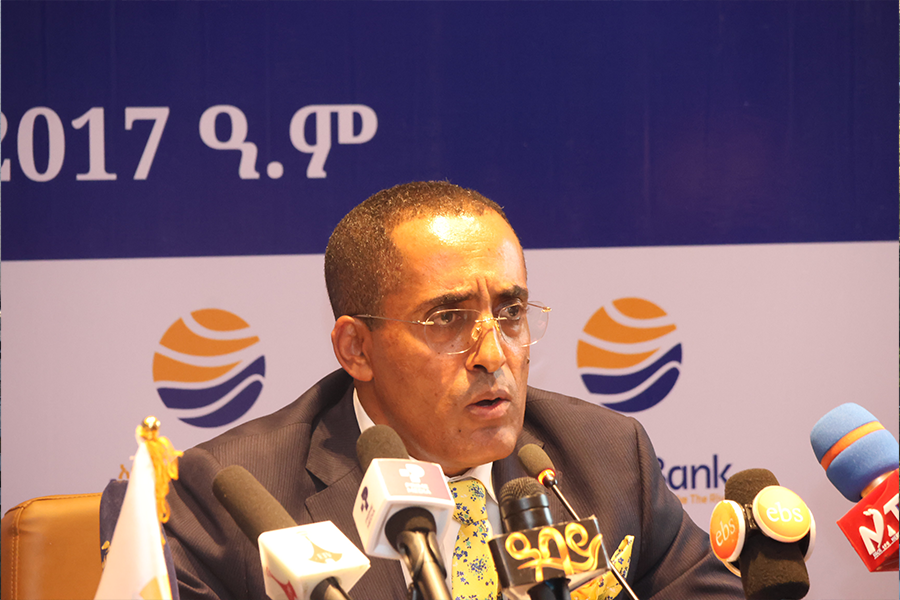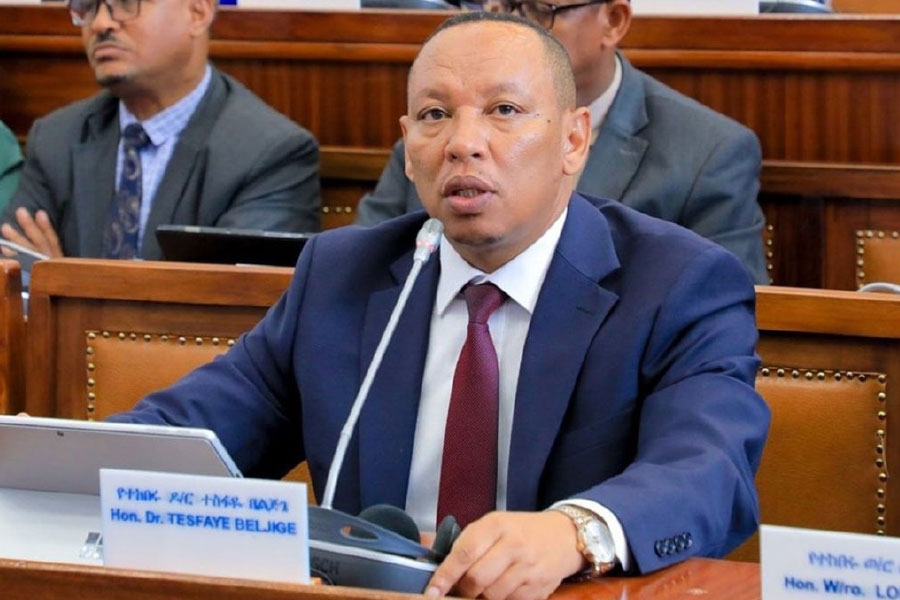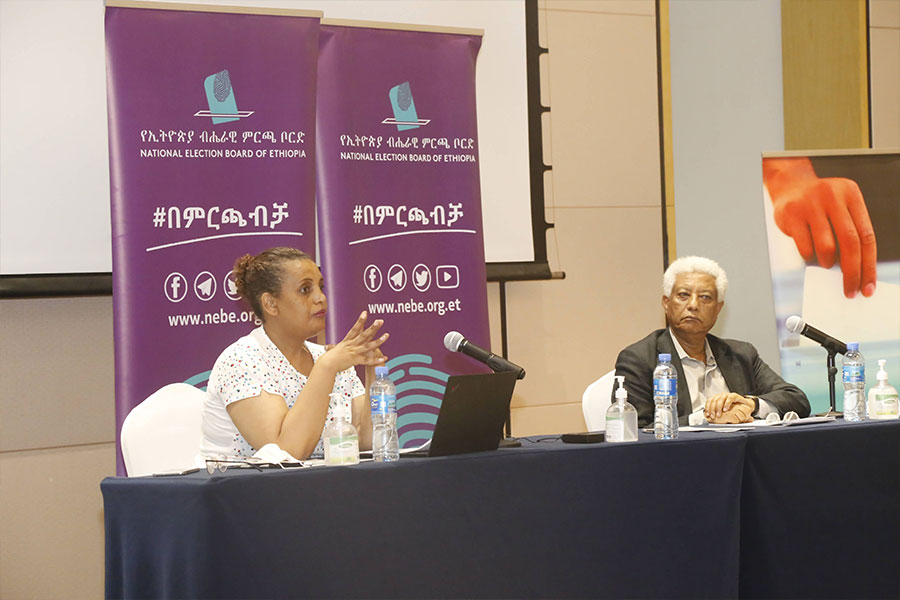
Apr 30 , 2021
By HAWI DADHI
Telecom developers opted out of the race for the two operational licenses in Ethiopia as the government remains firm in its position to close the mobile banking and telecom tower markets to foreign companies.
MTN Group, partnering with the Chinese Silk Road Fund, and the Global Partnership for Ethiopia, a consortium comprising Vodafone, Safaricom, Vodacom South Africa, CDC Group Plc and Sumitomo Corp, were the only two contenders announced to have submitted bids by the deadline last week. The consortium has received funding of half a billion dollars from the US International Development & Finance Corporation.
The telecom liberalisation process was initiated in 2018 with Prime Minister Abiy Ahmed (PhD) pledging his administration's commitment to the cause. A year later. the Ethiopian Communication Authority (ECA) was established in to facilitate the process. In May last year, the government called for international operators to submit their expressions of interest. A dozen operators, including Orange, Etisalat Telecom, Liquid Telecom, Axian, MTN, Saudi Telecom, responded to the invitation.
The decision was a significant step to ending a monopoly of over a century by the state-owned Ethio telecom, which had 44 million subscribers by the end of last year, even though it was undermined by the partial closure of the sector to foreign competition in the areas of mobile banking and telecom towers.
Telecom developers, which first showed interest to participate in the bid, along with officials of the World Bank, have been pleading for the full liberalisation of the mobile money market and the licensing of foreign tower companies, a proposal which was rejected by the Ministry of Finance.
Brook Taye (PhD), a senior advisor to the Ministry, explains that the potential bidders who dropped out of the race put forth three major reasons for doing so. Some expressed their interest in purchasing shares from Ethio telecom when 40pc of its share is floated, others were concerned mobile service provision is off-limits for foreign operators, while some were interested in bringing in a third-party tower builder, according to him he told Fortune.
The 2020 directive issued by the National Bank of Ethiopia, regarding mobile money operators, allows non-financial institutions to take part but limits the services to Ethiopians and foreigners of Ethiopian origin only, enabling the state giant Ethio telecom to provide mobile money services.
The Vodacom consortium, however, was not phased by the fact. Its officials are interested in providing the service and are hopeful that the government will look to liberalise digital financial services as well.
"Once the telecom licensing is completed, we have no doubt that they'll continue their work on the liberalisation of digital financial services," an official from the Vodacom consortium who wished to remain anonymous told Fortune.
Despite the optimism of the bidding company, however, experts think that the decision to bar foreign operators is the right one. Nebiat Tekle, a digital banking expert, believes that local competition should be fostered and local investors should have a strong standing before foreign operators come in.
"Then it will rely on the survival of the fittest," Nebiat said.
He added that liberalising the sector while the banking sector is closed down would be unfair.
Abdulmenan Mohammed, a financial statement analyst, concurs, saying that the mobile money and the telecom network provision issues should be seen from different angles.
"When the financial sector is opened to foreign investment, mobile money will probably become part of it," he said.
The Vodafone Group and Safaricom created M-Pesa, the popular mobile money service in Kenya. M-Pesa has so far managed to attract 29.1 million customers in the country, processing 41.5 billion dollars in 2020, amassing 68pc of the market share. The service has also expanded to several countries in Africa including South Africa, Egypt, and Ghana.
Although the directive is not clear on whether the international cooperators could possibly introduce their mobile money services by collaborating with local banks, the operators are open to the idea.
"We cooperate with banks in plenty of countries, there is no reason the consortium would not cooperate when the time comes," said an official from the consortium. The consortium has made partnerships with 75 public and private institutions thus far.
Partnering with a local bank as a system provider will not be a problem for the sector, instead, it can be beneficial for banks, according to Nebiat. "The growth of mobile financial services can be useful to banks if they manage to turn small cash holdings into deposits," he explains.
Another issue raised by interested operators was the limitation put on the use of infrastructure. The global trend shows that constructing towers in collaboration with third-party builders is common.
According to Brook, the operators have raised their concern that leasing out towers from Ethio telecom would disrupt their ordinary business model. Construction of towers is considered as capital expenditure while leasing would be a recurrent cost considered as operational cost. In addition, the rate for the leasing of towers has not been made available publicly but bidders have broached the issue.
"Negotiations are ongoing with the government with the help of the ECA to determine the rate of leasing, having reached no agreement thus far," an official from Vodacom told Fortune. There are more than 7,300 towers in Ethiopia, including 722 located in Addis Abeba.
The way the telecom liberalisation was planned, it was clear that the provision of infrastructure remains under the government's control all along, according to Abdulmenan.
"The bidders should have known this fact from the very beginning," he remarked.
The ECA will send out an invitation to the opening of the financial bid upon the conclusion of the technical evaluation. However, the success of the bidding process, which ended last week, is being questioned as the number of bidders matches the number of licenses the government is willing to give. The fact that the vast majority of interested operators withdrew from the race has raised eyebrows, with some world-renowned experts arguing that this means the bid has failed.
The Ministry of Finance, in charge of the liberalisation process, begs to differ. The bidding process has gone smoothly in regards to ending the 126-year-old telecom monopoly by bringing in international operators who are expected to transform the sector, according to its officials.
"What we're looking for is to bring in top-class operators," says Brook.
The first phase of the goal has been achieved, having attracted two from among the biggest operators in the world, and the success of the financial aspect will be determined upon the opening of the financial submissions, according to him.
Last month, Eyob Tekalign (PhD), state minister of Finance, remarked that the government plans to go ahead with the bidding process if it gets the value expected, if not, it will have another look.
PUBLISHED ON
Apr 30,2021 [ VOL
22 , NO
1096]

Fortune News | Jun 20,2025

Fortune News | Nov 13,2021

Fortune News | Jul 11,2021

Viewpoints | May 23,2021

News Analysis | Jun 19,2021

Dec 22 , 2024 . By TIZITA SHEWAFERAW
Charged with transforming colossal state-owned enterprises into modern and competitiv...

Aug 18 , 2024 . By AKSAH ITALO
Although predictable Yonas Zerihun's job in the ride-hailing service is not immune to...

Jul 28 , 2024 . By TIZITA SHEWAFERAW
Unhabitual, perhaps too many, Samuel Gebreyohannes, 38, used to occasionally enjoy a couple of beers at breakfast. However, he recently swit...

Jul 13 , 2024 . By AKSAH ITALO
Investors who rely on tractors, trucks, and field vehicles for commuting, transporting commodities, and f...

Jun 28 , 2025
Meseret Damtie, the assertive auditor general, has never been shy about naming names...

Jun 21 , 2025
A well-worn adage says, “Budget is not destiny, but it is direction.” Examining t...

Jun 14 , 2025
Yet again, the Horn of Africa is bracing for trouble. A region already frayed by wars...

Jun 7 , 2025
Few promises shine brighter in Addis Abeba than the pledge of a roof for every family...